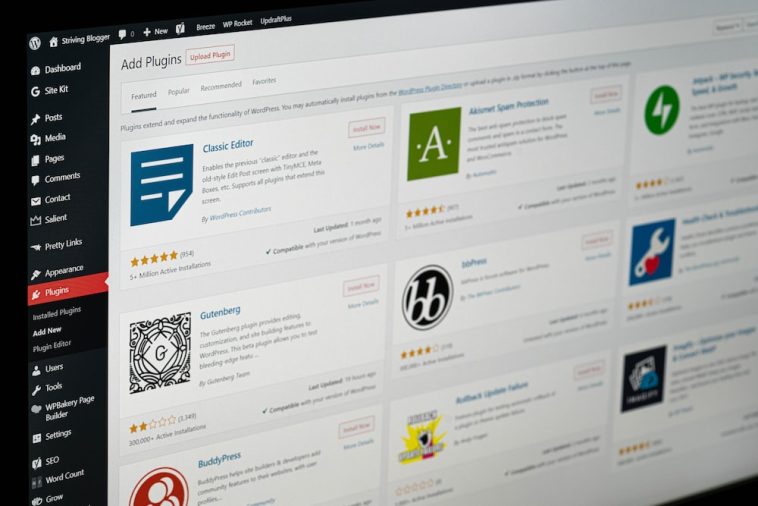Introduction.
Having a website can be a fantastic way to share your passions, promote your business, or showcase your skills. But let’s be real – just having a website isn’t enough.
You want to make it work for you, right? If you’ve built a WordPress website and are wondering how to turn it into a money-making machine, you’re in the right place.
Monetizing your WordPress site is a lot more doable than it might seem. You don’t need to be a tech expert or a marketing guru to get started. With a bit of strategy, creativity, and some basic tools, you can start making money from your site.
Whether you’re a blogger, a small business owner, or an affiliate marketer, there are tons of ways to turn your WordPress website into a source of income.
In this article, I’m going to break down the best ways to monetize your WordPress website. I’ll cover different methods, explain how they work, and help you figure out what might work best for you.
You don’t need a huge audience to get started – even a small, dedicated group of visitors can be enough to start earning.
How Do I Monetize My WordPress Website?
1. Affiliate Marketing: Earning While You Recommend.
Affiliate marketing is one of the easiest and most common ways to make money with a WordPress website.
The concept is simple: you promote a product or service on your site and earn a commission for every sale made through your unique affiliate link.
For example, let’s say you write a review about a product that you genuinely like. You include an affiliate link to that product in your article, and if someone clicks it and makes a purchase, you earn a commission.
Some of the most popular affiliate programs include Amazon Associates, ShareASale, and CJ Affiliate.
How to get started:
- Choose a niche that interests you and has affiliate products to promote.
- Join an affiliate program like Amazon Associates or one that fits your niche.
- Start writing content that naturally incorporates these affiliate links (like product reviews, recommendations, or tutorials).
The beauty of affiliate marketing is that it’s relatively low-effort once you’ve set things up. It works on autopilot – as long as people are clicking your links and making purchases, you’re making money.
2. Ad Revenue: Let the Ads Work for You.
Display ads are another popular way to monetize your website. If you’re cool with having some ads on your site, you can make money every time someone clicks or views them.
One of the most common ways to display ads is through Google AdSense, which places relevant ads on your site based on your content and your audience.
How to get started:
- Sign up for Google AdSense or any other ad network that fits your needs.
- Add the ad code to your site using plugins like Ad Inserter or through your WordPress theme’s settings.
- Track performance and optimize your ad placements.
Google AdSense is free to use, and once it’s set up, you can start earning money passively. But be mindful – it takes some time to build up a steady flow of revenue with ad networks, and your earnings will depend on your traffic and the types of ads displayed on your site.
3. Offer Your Products or Services.
One of the best ways to monetize your WordPress website is by offering your products or services.
This can include digital products like eBooks, online courses, stock photos, templates, or physical products if you have a business set up.
For example, if you’re a photographer, you can sell your images through your WordPress site, or if you’re a writer, you could offer freelance services. If you’re a consultant or coach, you could offer one-on-one sessions or downloadable guides.
How to get started:
- Create your product or service. Think about what you’re good at and what your audience might find valuable.
- Set up an online store on WordPress using a plugin like WooCommerce.
- Promote your products with content, social media, and email marketing.
Offering your products means you have complete control over pricing and profits. You also don’t have to share a percentage with an affiliate program or ad network, which means more money in your pocket.
4. Sponsored Posts and Content: Get Paid for Your Voice.
If you have a blog or any content that attracts a decent amount of traffic, you can start getting paid for writing sponsored posts or creating sponsored content.
Brands are always looking for influencers or content creators to promote their products, and if your site fits their target audience, you could get paid to write about it.
Sponsored content can range from product reviews to mentions in your blog posts or even dedicated pages or videos on your site.
How to get started:
- Build up a solid audience and traffic to your site.
- Reach out to brands or sign up with platforms like SponsoredReviews or TapInfluence.
- Create content that feels natural and authentic while promoting the sponsor’s product or service.
Just be sure to always disclose when content is sponsored, as required by law and ethics guidelines. Sponsored content can be very lucrative, especially if you have a strong, loyal audience.
5. Memberships: Give Your Most Loyal Visitors Exclusive Access.
A membership site is another great way to monetize your WordPress website. If you already have a dedicated audience, you can offer premium content, courses, or resources in exchange for a membership fee.
You can set up a members-only section of your site where people can access exclusive content, such as in-depth articles, videos, webinars, or downloadable resources. You could also offer personal coaching or direct access to you for a higher fee.
How to get started:
- Install a membership plugin like MemberPress or Restrict Content Pro.
- Create a valuable offering that will entice your audience to pay for exclusive access.
- Market your membership to your followers through email newsletters, social media, and your website.
One of the best things about membership sites is that they provide recurring income. Once someone signs up, they’ll likely continue paying each month, especially if the content or services you provide are consistently valuable.
6. Offer Freelance Services.
If you’ve got skills in writing, web development, design, SEO, or any other service, you can offer those services directly through your WordPress site.
Many people visit websites looking for professionals to help them with their projects, so why not position yourself as an expert and make money by providing services?
How to get started:
- Create a page on your website detailing the services you offer.
- Add a contact form so people can easily reach out to you.
- Start sharing your expertise through blog posts, tutorials, or case studies to show off your skills.
Freelance work can be a great way to monetize a WordPress site because it puts your skills to direct use. Plus, the demand for freelance services continues to grow, and you don’t need massive traffic to get started – just a few clients can be enough to make a significant income.
7. Donations and Crowdfunding: If People Love Your Content.
If your audience loves your content and wants to support you, donations or crowdfunding can be an easy way to monetize your site.
Platforms like Patreon, Ko-fi, or PayPal allow you to accept donations directly from your audience. In exchange, you can offer special perks, shout-outs, or behind-the-scenes content.
How to get started:
- Sign up for a donation platform like Patreon or Ko-fi.
- Add a donation button to your WordPress site.
- Promote your donation link on your site and social media.
While this might not generate a massive income for everyone, it can work well for creators who already have a dedicated fanbase. Plus, it’s a great way to create a direct connection with your audience.
FAQs
1. How long will it take to start earning money from my WordPress website?
It depends on the method you choose and how much time you dedicate to it. Affiliate marketing, for example, can start earning you money relatively quickly, but building up ad revenue or selling your products might take a bit longer.
2. Do I need a lot of traffic to monetize my WordPress site?
Not necessarily. While having more traffic can help, many monetization methods (like affiliate marketing or selling your products) can still be effective even with a smaller, more niche audience.
3. How do I make sure my monetization methods are ethical?
Always disclose when you’re using affiliate links or working with sponsors. Be transparent with your audience, and only promote products or services that you genuinely believe in.
Conclusion
Monetizing your WordPress website is entirely possible, even if you don’t have a massive following. The key is finding the methods that work best for you and staying consistent.
So, now that you know some of the top ways to earn money with your site, what’s stopping you from taking action?
Have you tried any of these methods yet, or are you thinking about giving them a shot?





GIPHY App Key not set. Please check settings